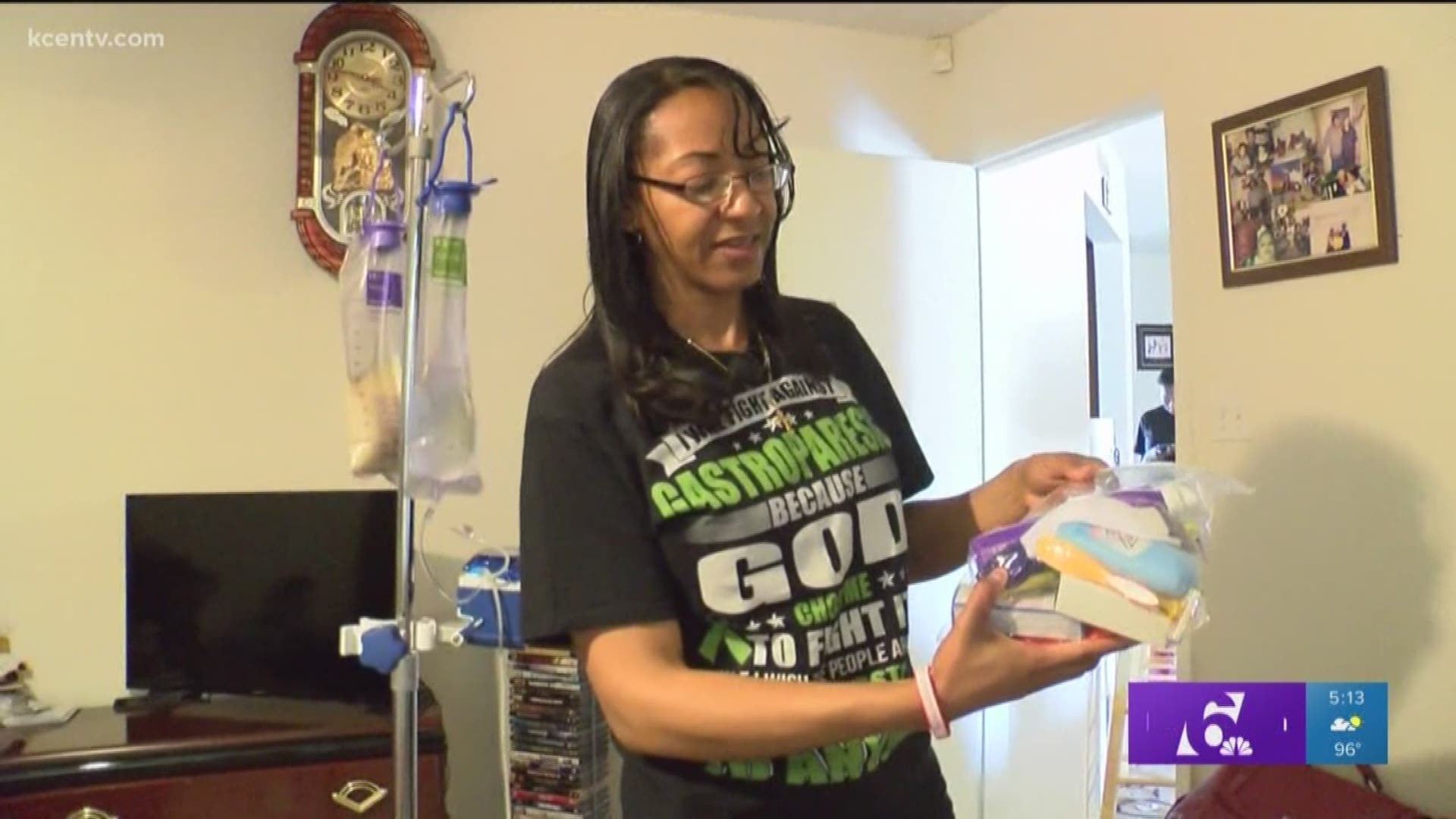Tonya Henry is an Army veteran.
She served in the mid-1990s here and overseas.
That’s also about the time she started having unusual health problems.
“It started when I was in the military around 1995 I would run and have a lot of abdominal pain and I was always constipated and nauseated,” Henry said.
For almost two decades, doctors treated Tonya for issues like constipation and irritable bowel syndrome.
But then in 2013 a special test revealed she had gastroparesis which Tonya said means, “delayed or paralyzed stomach.”
When Tonya eats food her body doesn't process it correctly.
It can leave her feeling extremely full, nauseated, bloated and in pain.
“You can’t win for losing. If you want to eat you try and you get sick. You don’t eat you still feel sick and full,” said Henry.
And unfortunately there is no cure.
“It’s a horrible way of life. There’s nothing you can do to change it, there’s no cure, there’s hardy any doctors who understand gastroparesis,” according to Henry.
First, Tonya started on medicine, but it left her with Parkinson’s like symptoms and then stopped working.
“I had rapid weight loss. I lost 25 lbs in a month and a half,” Henry said.
Then she had a stomach stimulator put in, which is about the same size as cardiac pacemaker, but it goes into her abdomen.
“Mine goes on my right side and the wires go into my stomach. That worked for a little bit too then after a year and a half that stopped working,” Henry remembered.
Finally in February Tonya got a feeding tube and is now attached to this pole 24 hours a day.
“I go to sleep with it I’m with it pretty much all day and night,” she said.
According to gastroparesisclinic.org, gastroparesis affects about 1-point-five million Americans, 80 percent are women.
“A lot of diseases you get sick and then you get better. With gastroparesis there’s not a lot of treatment and you’re like this is just it for the rest of my life,” explained Henry.
It can also be deadly.
Tonya stays connected to others with her disease through online support groups and Facebook pages.
She said so far this month they’ve already lost five people to the disease, many falling victim to infections like sepsis.
“That takes a toll and I think is that gonna be me?”
According to Tonya, many people with gastroparesis see counselors to help them cope with their disease, but she finds joy in helping others.
“You gotta keep going no matter what! You gotta find something positive and for me no matter how down I get I feel like I can always help someone else,” she said.
So, Tonya volunteers at her church, helps get sponsorships for groups like Relay for Life and is collecting hygiene items for homeless women in downtown Killeen.
Giving back any way she can and finding hope in her future despite everything she’s facing now.
Her goal is to help doctors understand the wide variety of symptoms related to gastroparesis.
She says many times doctors don’t realize how much pain this disease can cause, so she’s hoping they find a better protocol to treat patients like her in the future.

